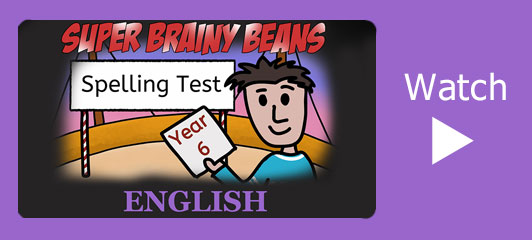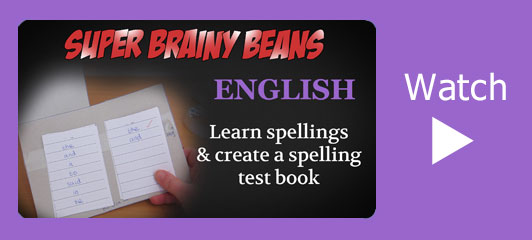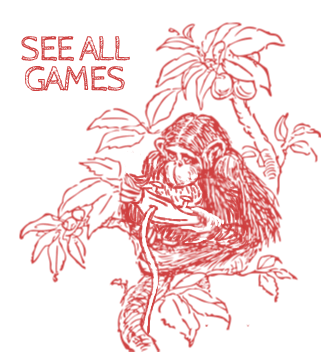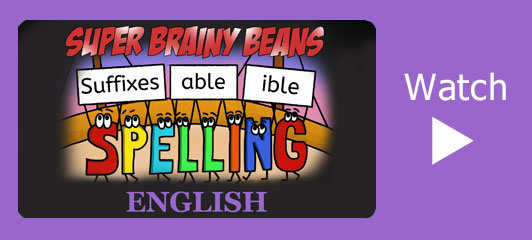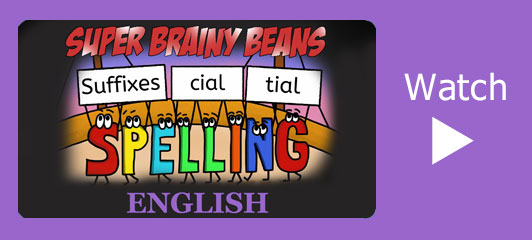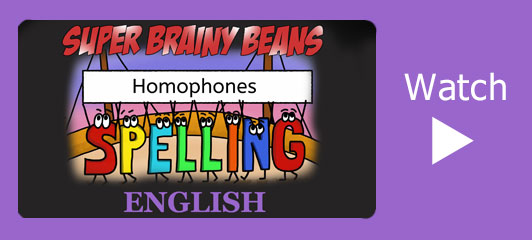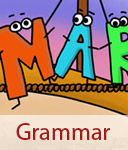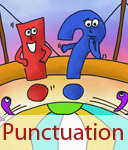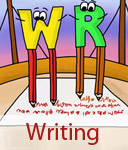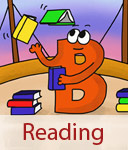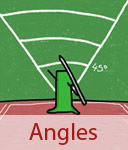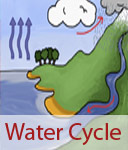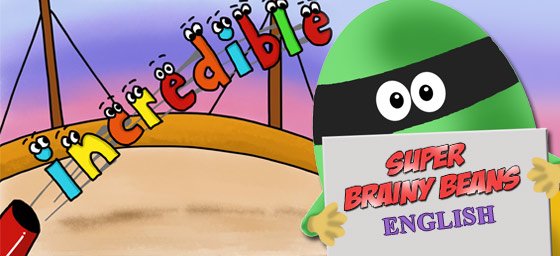
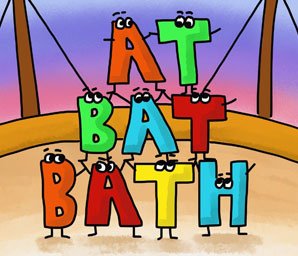
Spelling Year 6
Spelling Year 6 KS2. Support on spelling for kids with Super Brainy Beans. Primary homework help with worksheet downloads and online games.
Pick a level
If you find the spellings difficult in your year then try starting with spellings from the year below. It's ok to work lower than the year you are on and fill the gaps rather than struggling at your level without understanding the basics.
Take the Year 6 Spelling Test
Check what your spelling level is with our Year 6 spelling test.
Download all Year 6 spelling worksheets
Download and print out our spelling worksheets for Year 6. 360 words especially selected for kids in Year 6, KS2.
- Uses the Look, Say, Cover, Write, Check method.
- Covers all the essential words to learn in Year 6.
- Print at home.
Learning spellings
The best way to remember your spellings is the look, say, cover, write, check method. Regularly practicing this way will improve your spellings.

Practice your spellings for four days then get someone to test you on the fifth day without looking at the words first.
Download all Year 6 spelling sheets. 360 words especially selected for kids in Year 6, KS2.
Fill in your own words that you get wrong regularly with our blank spelling sheet.
Print off the sheets to make the notepads for the Spelling Test book
Spell all 40 common words
Throughout Year 6 children are expected to learn how to spell the 40 new words which are commonly used in reading and writing.
![]() Some of these do not follow the normal phonic rules and are known as 'tricky' words. Here there is no trick to learning to spell these words they just have to know.
Some of these do not follow the normal phonic rules and are known as 'tricky' words. Here there is no trick to learning to spell these words they just have to know.
Spelling sheets for the top 40 words.
Print off this checklist of the top 40 common words you should learn to spell.
Suffixes able & ible
Suffixes are groups of letters that can be added to a root word. Suffixes change the meaning of a word to make a new word.
Words ending in able or ible, shows something can be done.
breakable fashionable likeable reasonable
possible visible incredible terrible sensible
able or ible at the end of the word?
There is an easy way of working this out by taking away the ending and seeing if you have a root word.
noticeable
Notice is a true word so we use able.
possible
Poss is not a word so we use ible.
10 words ending with able.
10 words ending with ible.
Suffixes cial & tial
Use cial in a word when it comes after any of the vowels.
special official social
Use tial in a word when it comes after a consonant.
potential essential partial
10 words ending with cial or tial.
Spelling games
 Look, Cover, Write, Check
Look, Cover, Write, CheckLook at the word and type the word once the doors have closed. Choose Year 5 & 6.
 Little bird Spelling
Little bird SpellingSpell out the 'Tricky Words' in this little bird spelling game. Choose Year 5 & 6.
 Spooky Spelling
Spooky SpellingSpell out the 'Tricky Words' in this spooky spelling game. Choose Year 5 & 6.
Prefixes micro & mini
A prefix is a group of letters that are added to a root word. Prefixes change the meaning of a word to make a new word.
Words beginning with the prefix micro or mini, mean small.
minibus minibeast microchip
10 words beginning with the micro or mini prefix.
Words with ce
These words contain ce.
celebrate certificate sacrifice
10 words with ce.
Words with ie or ei
These words contain ee sound spelt ie or ei.
believe deceive ceiling
10 words with ie or ei.
Words with ou or ow
These words have ou or ow.
window known shoulder
10 words with ou or ow.
Homophones
Homophones are words that sound the same but mean different things. It's important which spelling you should use.
advice / advise
practice / practise
device / devise
10 homophone words.

